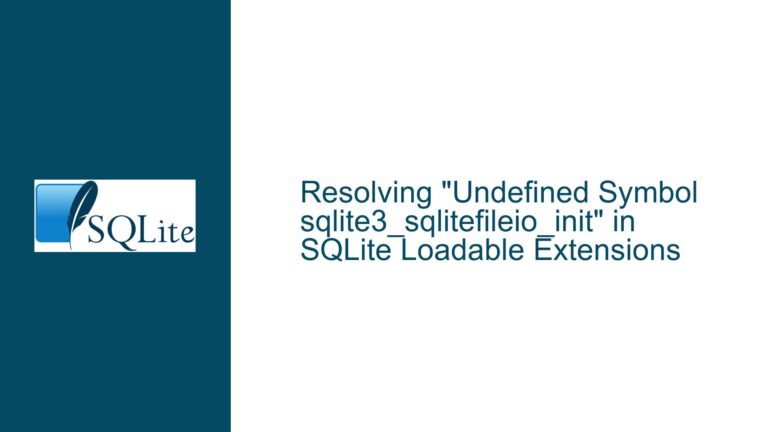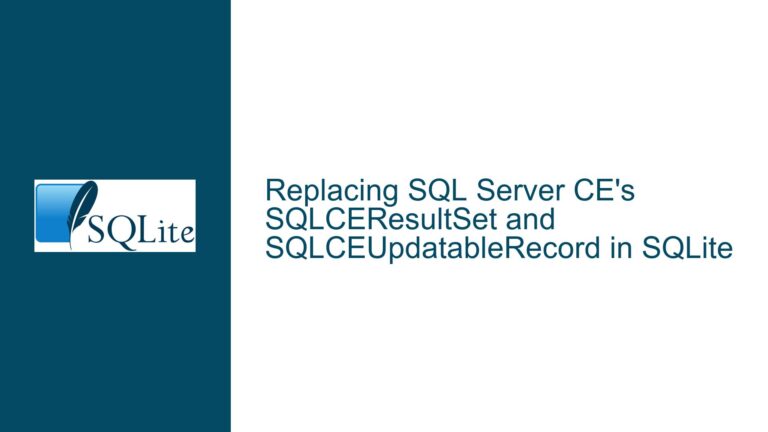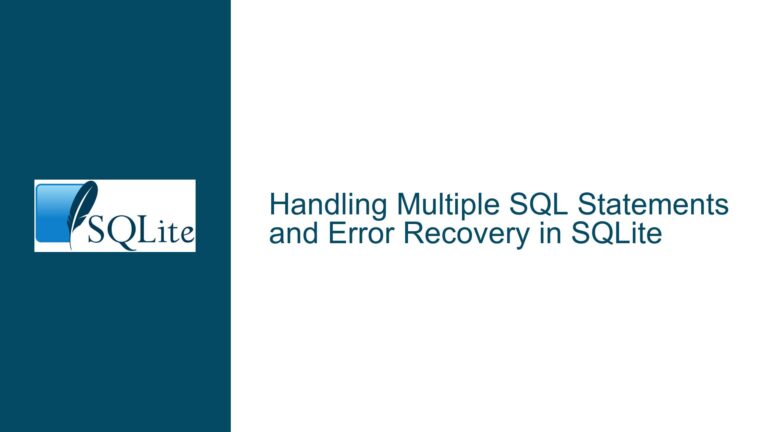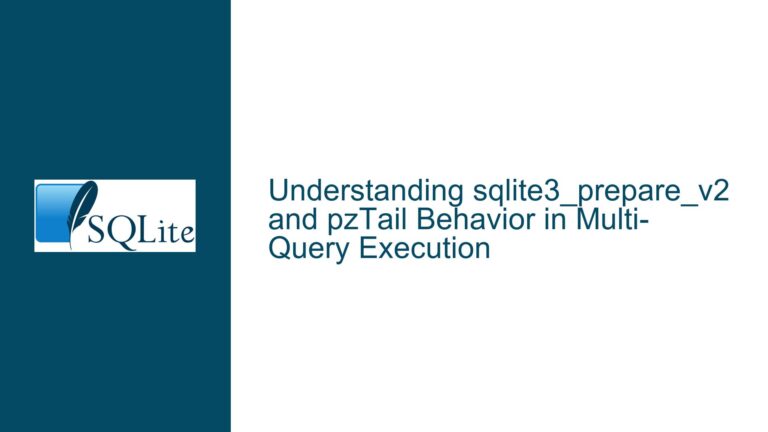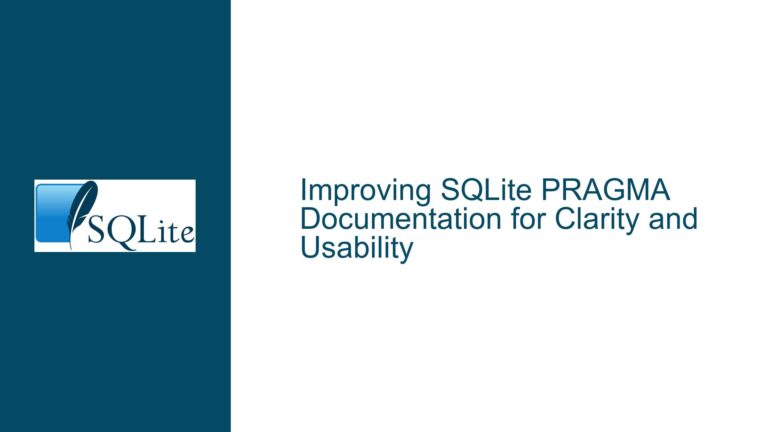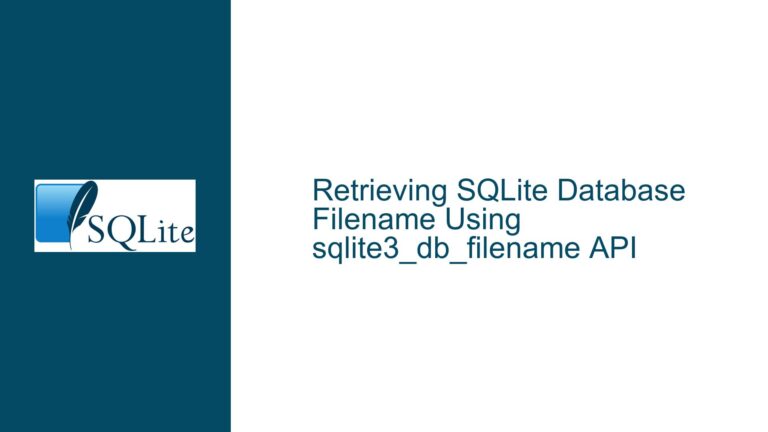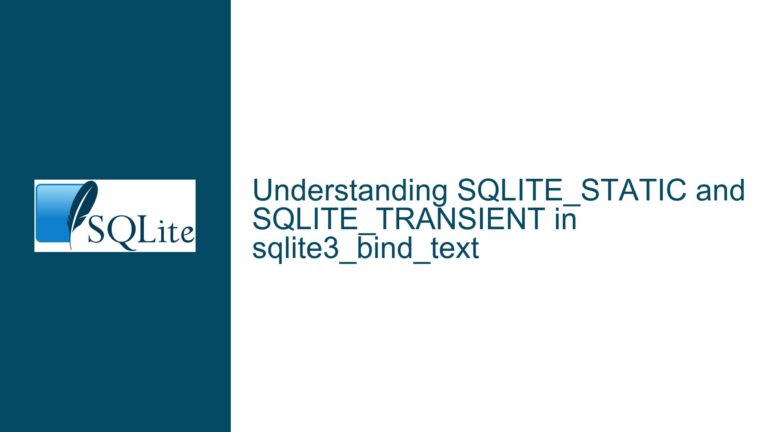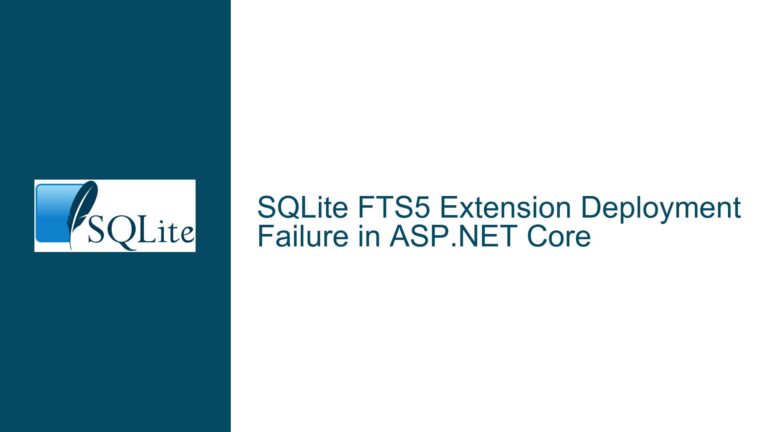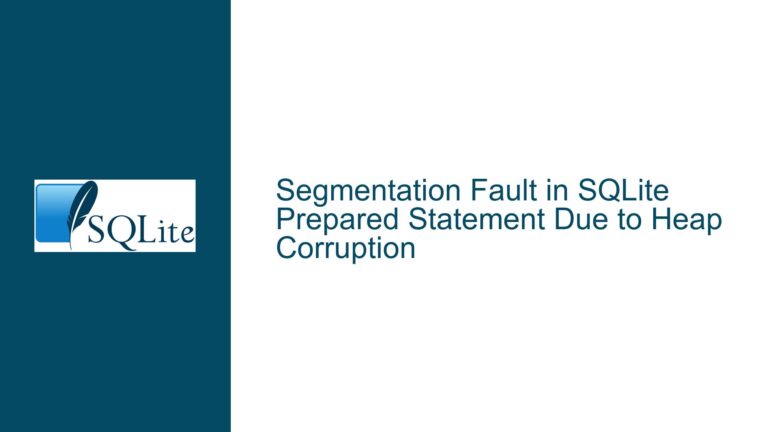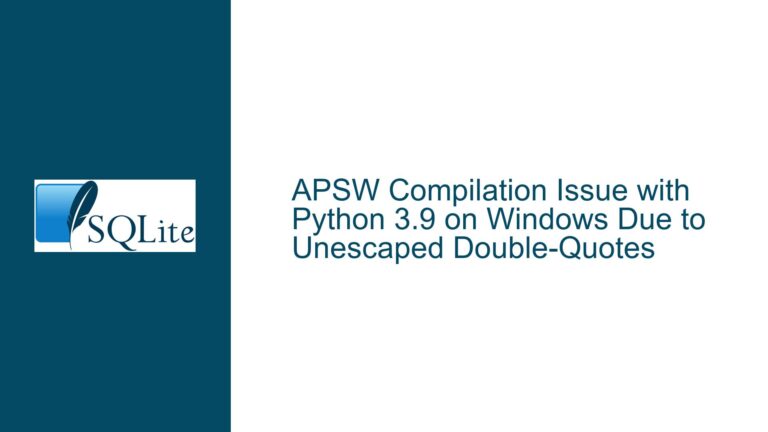Resolving “Undefined Symbol sqlite3_sqlitefileio_init” in SQLite Loadable Extensions
SQLite Loadable Extension Compilation and Symbol Naming Conventions When working with SQLite loadable extensions, one of the most common issues developers encounter is related to symbol naming conventions during the compilation and loading process. The error message "undefined symbol sqlite3_sqlitefileio_init" typically arises when there is a mismatch between the expected entry point function name and…
